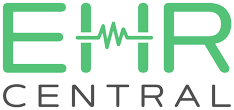Guide to Ensuring Audit-Readiness in Healthcare Practices: A Thorough Overview
Introduction:
In the dynamic landscape of healthcare, maintaining audit readiness is crucial for ensuring compliance, quality of care, and overall operational efficiency. This comprehensive guide aims to provide healthcare practices with an in-depth

overview of the key steps and strategies to ensure audit readiness.
Section 1: Understanding Audit Readiness in Healthcare: Audit readiness in healthcare refers to the state of being prepared for internal or external audits. This section delves into the significance of audit readiness in maintaining regulatory compliance, enhancing patient safety, and ensuring financial integrity.
Section 2: Key Regulatory Requirements: Explore the major regulatory frameworks governing healthcare practices, such as HIPAA, HITECH Act, and CMS guidelines. Understand the specific requirements these regulations impose and their implications for audit readiness.
Section 3: Establishing Robust Documentation Practices: Detailed documentation is the foundation of audit readiness. This section provides insights into creating and maintaining accurate and comprehensive records, including patient records, policies, procedures, and incident reports.
Section 4: Training and Education for Staff: Educate your healthcare team on compliance and audit procedures. Highlight the significance of ongoing training to keep staff updated on regulatory changes and best practices, fostering a culture of accountability and awareness.
How EHRCentral enhances your healthcare practice?
Section 5: Implementing IT Security Measures: In the digital age, protecting patient data is paramount. Explore strategies for implementing robust IT security measures, including encryption, access controls, and regular cybersecurity assessments, to safeguard sensitive information.
Section 6: Conducting Regular Internal Audits: Detail the benefits of conducting regular internal audits to identify and address potential compliance issues before external audits. Discuss the importance of creating an internal audit team and establishing audit protocols.
Section 7: Collaborating with External Auditors: When external audits are imminent, collaboration with auditors is essential. Provide tips on effectively working with external auditors, including transparency, communication, and addressing identified issues promptly.
Conclusion:
Ensuring audit readiness in healthcare practices is an ongoing process that requires commitment, collaboration, and a proactive approach. By understanding regulatory requirements, maintaining robust documentation practices, investing in staff training, implementing IT security measures, and conducting regular audits, healthcare practices can position themselves for success in an ever-evolving healthcare landscape.





